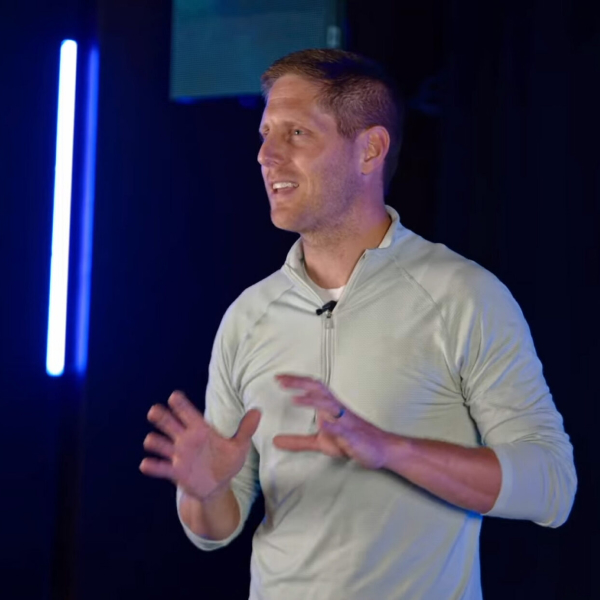My father grew up on the tail end of the great depression. I believe this and the economic condition of his family shaped his mindset towards money and finances. You see, my father is the most frugal person I have ever met. We only bought what we needed, never what we wanted. This meant that my mom usually got kitchen equipment for Christmas, while I usually got new shoes and clothes. I rarely remember staying at a hotel. We always camped. Truly, my father was the epitome of “a penny saved is a penny earned.”
This rubbed off on me. I learned to live life as a frugal miser. I lived in only the cheapest places, wore the cheapest socially acceptable clothes possible, and drove a cheap car. I was entrenched in the idea that the way my dad and I viewed money and finances was the best way to view money and finances, and I thought it was how everyone should view these things. So when I got married, then naturally, I had to “teach” my wife the “proper way” to view and treat money.
Without knowing it, and feeling justified and even self-righteous about my views toward money, I had a scarcity mindset. With this mindset, I viewed my financial situation as a fixed pie. This meant that if I wanted to build wealth and get rich, I would have to spend less in order to preserve and save more of my pie. This is different from an abundance mindset. An abundance mindset allows one to see their financial situation as something that can grow and expand. This mindset leads one to believe that the way to build wealth is to increase the size of the pie, even if it take increasing costs in order to do so.

This deeply held mindset affected my life in a number of ways. First, it shaped my thinking and how I thought about money and possessions. To paraphrase Jen Sincero, the author of You are a Badass at Making Money, I lived in fear and held on to what I had because I did not trust that there could be more, that my pie could expand. Second, it shaped my learning. Specifically, I only sought after information that confirmed my mindset about money and finances, and I did not trust information that suggested I think differently. Additionally, it affected my behaviors. Literally, my mindset affected everything that I purchased, including where I lived, the clothes I wore, and the car I drove.
In turn, this mindset affected my success in life, work, and leadership.
Because of my scarcity mindset, I lived life below my potential. During the first several years of my undergraduate studies, I only lived in off-campus housing that was the cheapest I could find. And, to be quite honest with you, my social life was not that great. This was not because I wasn’t very social; rather, it was because of the people I lived around and associated with. The people that are attracted to live in the cheapest places possible, while very nice people, are not the most fun and outgoing.

But then, something unique happened during the last year of my studies. Still possessing a scarcity mindset, we crammed five people into a three-person apartment in one of the more expensive apartment complexes in the area. Being seen as somewhat exclusive because of its cost, this apartment complex attracted those that really wanted to live in a great social environment. That year was the best year of my college career because I was now living by and associating with people that were much more fun and outgoing. Looking back, I now realize that the quality of my life and social life was significantly lower than what it could have been had I possessed a different mindset about money. I was living below my opportunity. Had I possessed a more positive abundance mindset, I fully believe I would have had a much better overall college experience.
My scarcity mindset also shaped how I viewed work. Seeing my finances as a fixed pie, there has been no reason for me to be entrepreneurial and invest my money to expand my pie. In fact, I only saw such an entrepreneurial venture and associated investment as eating up a larger portion of my pie. Thus, I really did not even entertain the idea of starting my own business. So, I continued to plug along, essentially working the standard nine-to-five work week, while constantly wondering how I could save a buck here and there.

But, since changing my mindset to more of an abundance mindset, I now see my time beyond my nine-to-five as my opportunity to expand my pie. Thus, rather than plugging along working 40 hours a week, I now work 60-70 hours a week, 20-30 of those hours creating things like this book. Want to know what I most look forward to most between my 40 hours of working and my 20-30 hours of creating? You got it, my creating. With my new mindset, my work has completely changed for the better.
But, you might be saying: “Your work isn’t better, you are working 60-70 hours a week. That stinks!” But, I don’t see it that way, and for me it does not “stink.” I say that for two reasons. First, in those 20-30 extra hours, I am pushing myself and growing in a way I never have before, and I am creating things designed to better the lives of others. It is thrilling work that I love. Second, I see this additional time as an investment for greater freedom, flexibility, opportunity, and abundance later in life.
Finally, my mindset toward money has also shaped my leadership. Let me discuss one aspect of that: the degree to which I have been respected by others. Going back to my college experience, another significant change occurred as I entered my final year of my undergraduate studies. Until that point, I drove “The Booger.” The Booger was a green 1990 Nissan pickup truck with standard-issued tires, which meant it looked more like an El Camino than a truck.

With my scarcity mindset, I was proud to drive “The Booger.” To me, it was a daily signal that I was not eating into my fixed pie with a car payment, and thus saving more of my pie relative to my peers. But, what I didn’t realize is that “The Booger” was also saying something about me, and those things were not positive. Evidence of this is that during the few years I drove “The Booger,” while I went out on a lot of dates, I only had a couple girls that went out with me more than once.
Then a “miracle” happened. I landed a summer internship across the country. This was not the miracle. The miracle is that I convinced my dad (yes, the frugal one) that my truck would not likely make it across the country and so he helped me buy a new car (to this day, I am honestly not sure how that happened). We purchased a 3-year-old clean-looking Ford Focus.
I kid you not, after this change (and also the change in where I lived), nearly every girl I went out with was willing to go out with me more than once. In fact, that last year of college was the first time since high school where I dated someone longer than a couple of weeks. There was no coincidence about this. I do not think I changed anything about myself or how I acted while on dates, but my dating life had significantly improved. Looking back, I was oblivious to the fact that “The Booger” actually sent negative signals to others about me, rather than the positive signals that I personally felt from driving a cheap truck with no payments. Also, I was unaware of the fact that it was probably embarrassing to be seen in the passenger seat of a vehicle nicknamed “The Booger.” Looking back, it has become crystal clear to me that my mindset toward money impacted my decisions and behaviors, and correspondingly, these decisions and behaviors shaped the way other people saw and respected me.
I share these examples to demonstrate that while we are largely unaware of it, our mindsets are truly dictating nearly every aspect of our life. Between my personal experiences and knowing all of the research on mindsets, what I have come to realize is that our mindsets are our overlooked, yet foundational ingredient to personal success.
But here is the beautiful thing about this: If we can awaken to our mindsets, stop overlooking them, and identify them, then we will be empowered to improve them and then harness them to improve our thinking, learning, and behavior. In turn, this will naturally improve and enhance our success in life, work, and leadership.
To help you awaken to your own mindsets, I have developed this personal mindset assessment, which will help you diagnose you own personal mindsets:











One Response
Thank you very much for this beautiful article. This is really great & helpful. I read your article & it is helpful to me. I appreciate your writing skills & thoughts. Great.